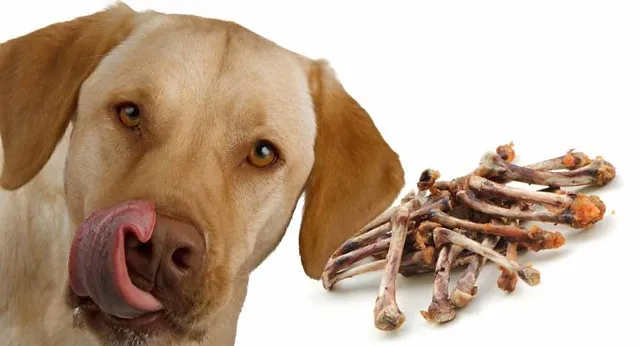As a dog owner, it's only natural to want to share your meals with your furry companion. Chicken is a common household food, but when it comes to bones, especially chicken bones, many pet owners wonder if they are safe for dogs. The short answer is no—chicken bones, especially cooked ones, can pose serious risks to your dog's health.
Understanding the Risks of Chicken Bones
1. Cooked vs. Raw Bones:
- Cooked Chicken Bones: These bones are brittle and can splinter easily when chewed, leading to potential injuries in your dog’s mouth, throat, or digestive tract. Splintered bones can cause blockages or tears in the gastrointestinal tract, which can be life-threatening and require emergency veterinary care.
- Raw Chicken Bones: While some veterinarians believe that raw chicken bones can be safer for dogs, they still carry risks. Raw bones can still splinter, and there is a risk of bacterial contamination (like salmonella) that can affect both your dog and humans in the household.
2. Potential Health Hazards:
- Choking Hazard: Small or splintered bones can easily get lodged in a dog's throat, leading to choking.
- Digestive Issues: If a dog ingests large pieces of bone, it can lead to constipation or even intestinal blockages, requiring surgery to remove.
- Oral Injuries: Sharp edges from splintered bones can cause cuts or damage to your dog's gums and teeth.
Veterinary Recommendations
Veterinarians generally advise against feeding dogs chicken bones, particularly cooked ones. If you're looking for safe ways to provide your dog with bone-related treats, consider the following options:
-
Raw Meaty Bones: If you want to give your dog a bone to chew on, opt for raw bones that are larger and less likely to splinter. Raw meaty bones, such as those from beef or lamb, can provide dental benefits and are safer than chicken bones.
-
Consult Your Veterinarian: Always discuss any changes to your dog's diet with your veterinarian. They can provide personalized advice based on your dog's specific health needs, size, and chewing habits.
Alternatives to Chicken Bones
If you're looking for alternatives to chicken bones that can keep your dog occupied and provide nutritional benefits, consider these options:
-
Commercially Available Chews:
- Look for dog-safe chews that are designed to be digestible and safe. Brands like Nylabone and Greenies offer a variety of options that can help clean your dog's teeth while satisfying their chewing instinct.
-
Raw Veggies:
- Carrots, celery, or sweet potatoes can be great crunchy snacks that are safe for dogs. They are low in calories and high in vitamins and minerals.
-
Dental Chews:
- These chews are specifically formulated to help maintain your dog's dental health while being safe to consume. They can help reduce plaque and tartar buildup.
-
Homemade Treats:
- Consider making homemade dog treats using ingredients that are safe for dogs. You can bake biscuits using peanut butter, oats, and pumpkin, which can be a healthy and enjoyable alternative.
Signs of Bone-Related Injuries
If your dog has consumed chicken bones or shows any signs of distress after eating, it's crucial to monitor them closely. Watch for these symptoms:
- Vomiting
- Diarrhea
- Lethargy
- Abdominal pain or swelling
- Difficulty swallowing
- Excessive drooling
If you notice any of these signs, contact your veterinarian immediately for guidance.
Conclusion
In summary, chicken bones, especially cooked ones, pose significant health risks to dogs and should be avoided entirely. Opt for safer alternatives, such as raw meaty bones, commercial chews, or healthy vegetables, to ensure your dog enjoys their treats without putting their health at risk. Always consult your veterinarian for tailored advice and recommendations based on your dog’s needs.


